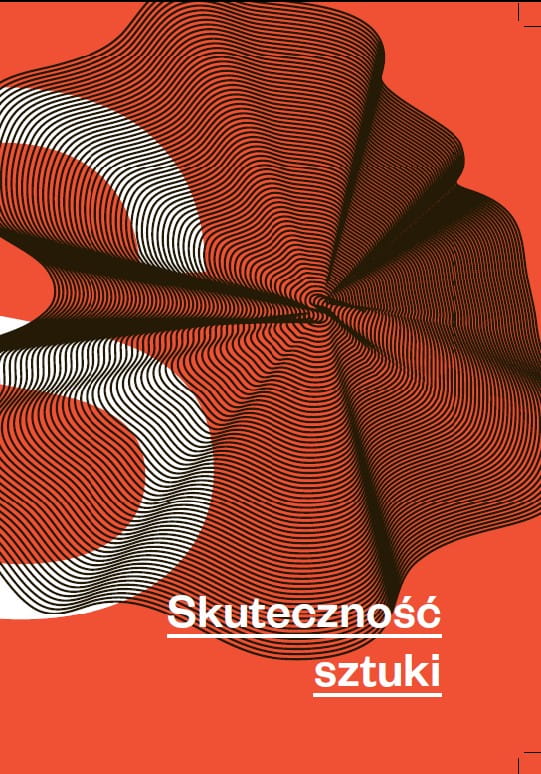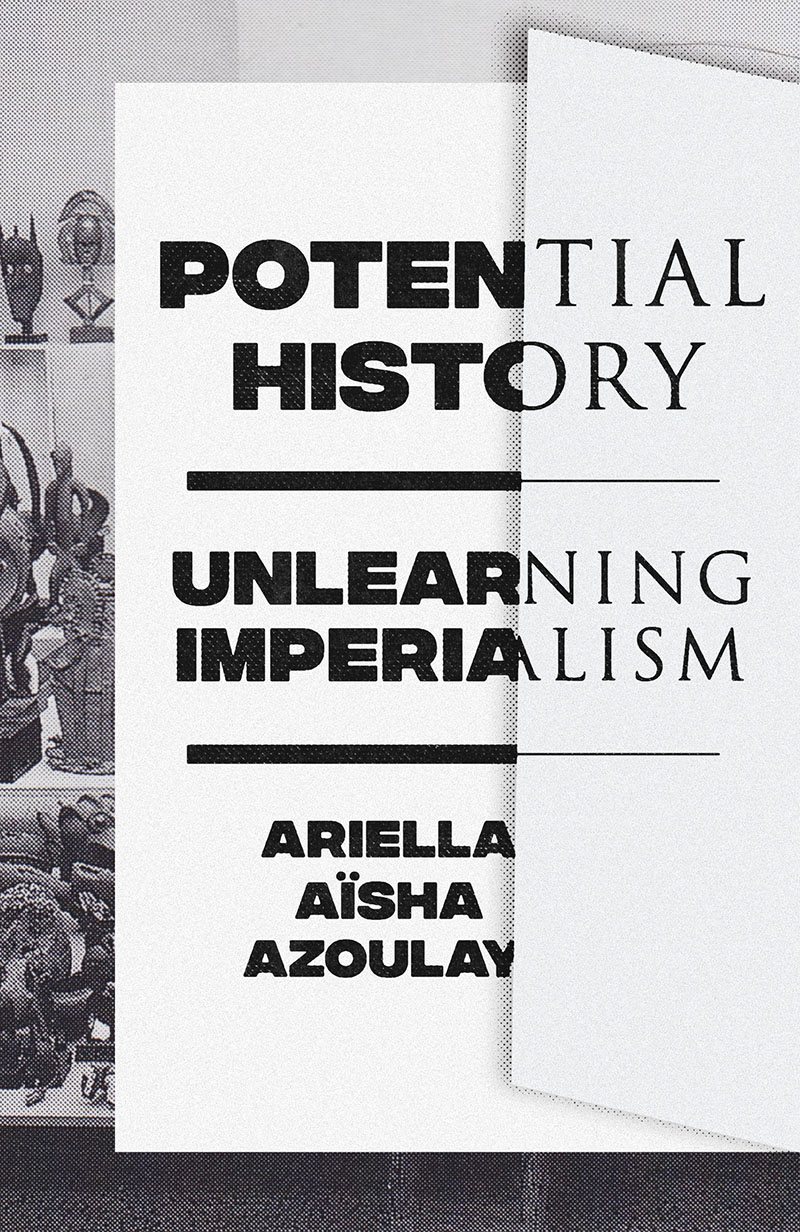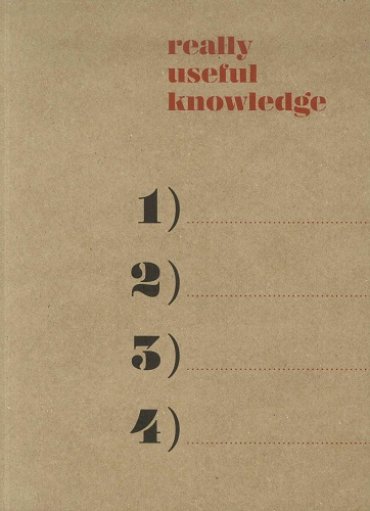Skuteczność sztuki (2014) [Polish]
Filed under book | Tags: · activism, art, art theory, community art, design, knowledge production, labour, participation, participatory art, politics, production, society, work

“Publikacja dotyczy jednego z najważniejszych problemów współczesnej sztuki – jej możliwej i oczekiwanej skuteczności. W obszernym tomie pod redakcją Tomasza Załuskiego, w ponad dwudziestu esejach i wywiadach temat ten zostaje przeanalizowany przez teoretyków i praktyków sztuki współczesnej. Dzięki tej wielości perspektyw publikacja jest pełną aktualnych odniesień prezentacją różnych poglądów, doświadczeń i postaw.
Pojęcie „skuteczności” jest przez autorów ujęte w krytyczny sposób i szeroko sproblematyzowane. Eseje i wywiady zostały pogrupowane wokół sześciu zagadnień: Jak sztuka odnosi się do współczesnych zjawisk ekonomicznych i rodzajów pracy oraz produkcji? Czy dizajn może kształtować zachowania i relacje społeczne? Kolejne części stawiają pytania o kwestie kolektywności, partycypacji i politycznego zaangażowania artystów, w tym o związki sztuki i miejskiego aktywizmu. Wreszcie podjęte zostają problemy dotyczącego tego, czy sztuka może być narzędziem społecznej zmiany oraz czy istnieje dziś miejsce dla sojuszu sztuki i nauki?
Publikacja jest podsumowaniem trzyletniej dyskusji prowadzonej w Muzeum Sztuki na temat zagadnienia skuteczności sztuki.”
Contributors: Edwin Bendyk, Łukasz Białkowski, Roman Dziadkiewicz, Adam Dzidowski, Joanna Erbel, Mikołaj Iwański, Aleksandra Jach, Rafał Jakubowicz, Małgorzata Ludwisiak, Ewa Majewska, Wojtek Moćko, Zbigniew Oksiuta, Adam Ostolski, Marcin Polak, Mikołaj Ratajczak, Monika Rosińska, Aneta Rostkowska, Jan Sowa, Joanna Warsza, Tomasz Załuski, Marcin Zaród, Agnieszka Ziętek.
Edited by Tadeusz Załuski
Publisher Muzeum Sztuki w Łodzi, Łódź, 2014
ISBN 9788363820190, 8363820199
579 pages
Review: Szum (2015, PL).
Comment (0)Ariella Aïsha Azoulay: Potential History: Unlearning Imperialism (2019)
Filed under book | Tags: · archive, art, care, colonialism, commons, history, human rights, imperialism, israel, museum, palestine, photography, politics, sovereignty, strike, theory, violence, world

“A passionately urgent call for all of us to unlearn imperialism and repair the violent world we share
In this theoretical tour-de-force, renowned scholar Ariella Aïsha Azoulay calls on us to recognize the imperial foundations of knowledge and to refuse its strictures and its many violences.
Azoulay argues that the institutions that make our world, from archives and museums to ideas of sovereignty and human rights to history itself, are all dependent on imperial modes of thinking. Imperialism has segmented populations into differentially governed groups, continually emphasized the possibility of progress while it tries to destroy what came before, and voraciously seeks out the new by sealing the past away in dusty archival boxes and the glass vitrines of museums.
By practicing what she calls potential history, Azoulay argues that we can still refuse the original imperial violence that shattered communities, lives, and worlds, from native peoples in the Americas at the moment of conquest to the Congo ruled by Belgium’s brutal King Léopold II, from dispossessed Palestinians in 1948 to displaced refugees in our own day. In Potential History, Azoulay travels alongside historical companions—an old Palestinian man who refused to leave his village in 1948, an anonymous woman in war-ravaged Berlin, looted objects and documents torn from their worlds and now housed in archives and museums—to chart the ways imperialism has sought to order time, space, and politics.
Rather than looking for a new future, Azoulay calls upon us to rewind history and unlearn our imperial rights, to continue to refuse imperial violence by making present what was invented as ‘past’ and making the repair of torn worlds the substance of politics.”
Publisher Verso Books, London, 2019
ISBN 9781788735711, 1788735714
656 pages
Interviews with author: Jadaliyya (2019), Brad Evans (LA Review of Books, 2020), Sabrina Alli (Guernica, 2020).
Reviews: Ian Wallace (Artforum, 2020), Guy Mannes-Abbott (Third Text, 2020), Louis Rogers (review31, 2020), Stephen Sheehi (Hyperallergic, 2020), Luke Urbain (InVisible Culture, 2020), Lunettes Rouges (Le Monde blog, 2020, FR, part 2), Sascha Crasnow (Field, 2022).
Roundtable: Gil Hochberg, Zoé Samudzi, Joshua Simon, Robert Yerachmiel Sniderman (Protocols, 2020).
HTML (added on 2020-2-2)
EPUB (15 MB)
Really Useful Knowledge (2014)
Filed under catalogue | Tags: · art, conceptual art, critical pedagogy, education, knowledge, pedagogy, politics, sociology of art, theory, useful art

“This catalogue investigates the notion of “really useful knowledge” and its origins. In the 1820s and 1830s, working class organisations in the UK introduced this phrase to describe a body of knowledge that encompassed various “unpractical” disciplines such as politics, economics and philosophy, as opposed to the “useful knowledge” proclaimed by business owners who had previously begun to invest more heavily in their companies’ progress through financing workers’ education in “applicable” disciplines like engineering, physics, chemistry and mathematics. The publication presents texts and conversations that analyse these themes, including philosophy, art, politics and technology.”
With contributions by What, How and for Whom/WHW, Marina Garcés, Raqs Media Collective, Luis Camnitzer, Trevor Paglen and Jacob Appelbaum, Fred Moten and Stefano Harney, and Gáspár M. Tamás.
Curated by What, How and for Whom/WHW
Publisher Museo Nacional Centro de Arte Reina Sofía (MACBA), Barcelona, 2014
ISBN 9788480264990, 8480264993
285+[10] pages
Discussion: Charles Esche, Manuel Borja-Villel (L’Internationale, 2015).
PDF (14 MB)
Comment (0)
